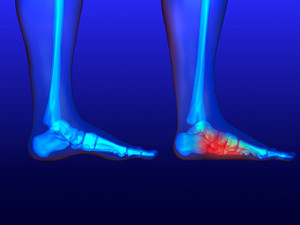How Are Flat Feet Diagnosed in Children?
Tuesday, 24 August 2021 00:00The majority of children are born with flat feet and gradually develop an arch during early childhood, typically between the ages of 3 and 5. Some children, however, continue to have flat feet past this age and even into adulthood. Flat feet may not cause any noticeable symptoms, or they may lead to foot and ankle pain, abnormal walking patterns, and an increased risk of other foot problems. A podiatrist can diagnose flat feet through physical examination. Your child may be asked to stand on the ground, sit with their feet dangling over the edge of a chair, stand on their tiptoes, or walk around the room so that the doctor can see how their feet look and function under various conditions. The doctor may also examine their ankles to see if they have a short Achilles tendon, which sometimes co-occurs with flat feet. If you are concerned about the health of your child’s feet, don’t hesitate to schedule an appointment with a podiatrist.
Flatfoot is a condition many people suffer from. If you have flat feet, contact the podiatrists from New England Family Foot Care. Our doctors will treat your foot and ankle needs.
What Are Flat Feet?
Flatfoot is a condition in which the arch of the foot is depressed and the sole of the foot is almost completely in contact with the ground. About 20-30% of the population generally has flat feet because their arches never formed during growth.
Conditions & Problems:
Having flat feet makes it difficult to run or walk because of the stress placed on the ankles.
Alignment – The general alignment of your legs can be disrupted, because the ankles move inward which can cause major discomfort.
Knees – If you have complications with your knees, flat feet can be a contributor to arthritis in that area.
Symptoms
- Pain around the heel or arch area
- Trouble standing on the tip toe
- Swelling around the inside of the ankle
- Flat look to one or both feet
- Having your shoes feel uneven when worn
Treatment
If you are experiencing pain and stress on the foot you may weaken the posterior tibial tendon, which runs around the inside of the ankle.
If you have any questions please feel free to contact our office located in Milton, MA . We offer the newest diagnostic and treatment technologies for all your foot and ankle needs.





